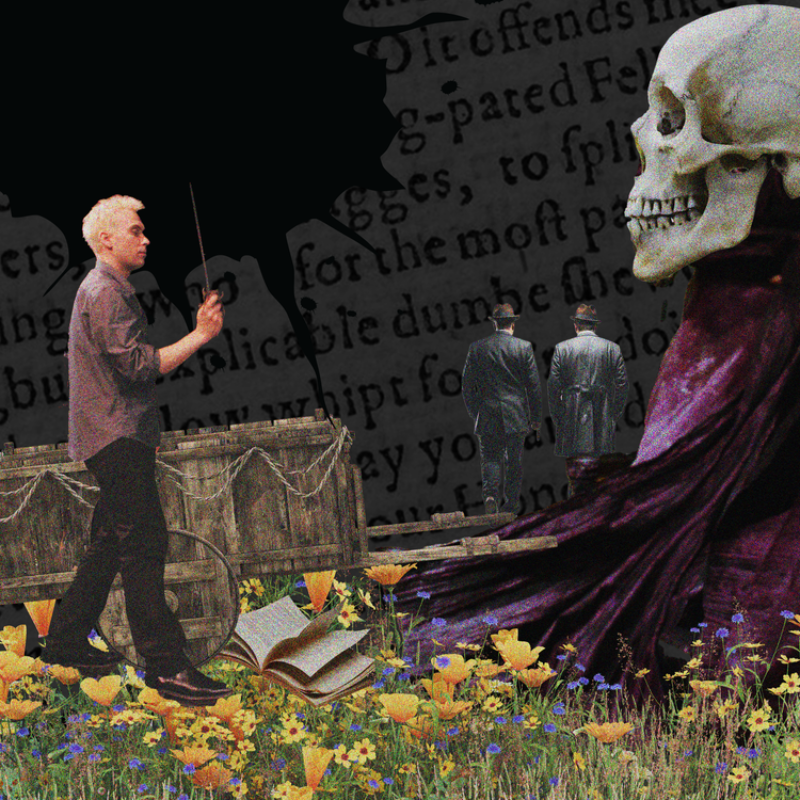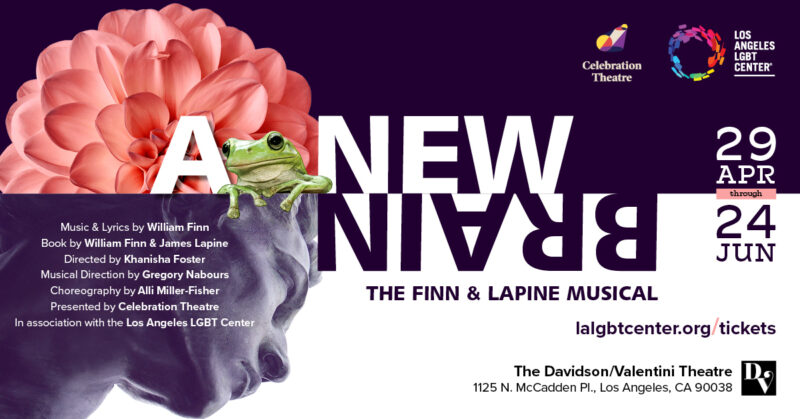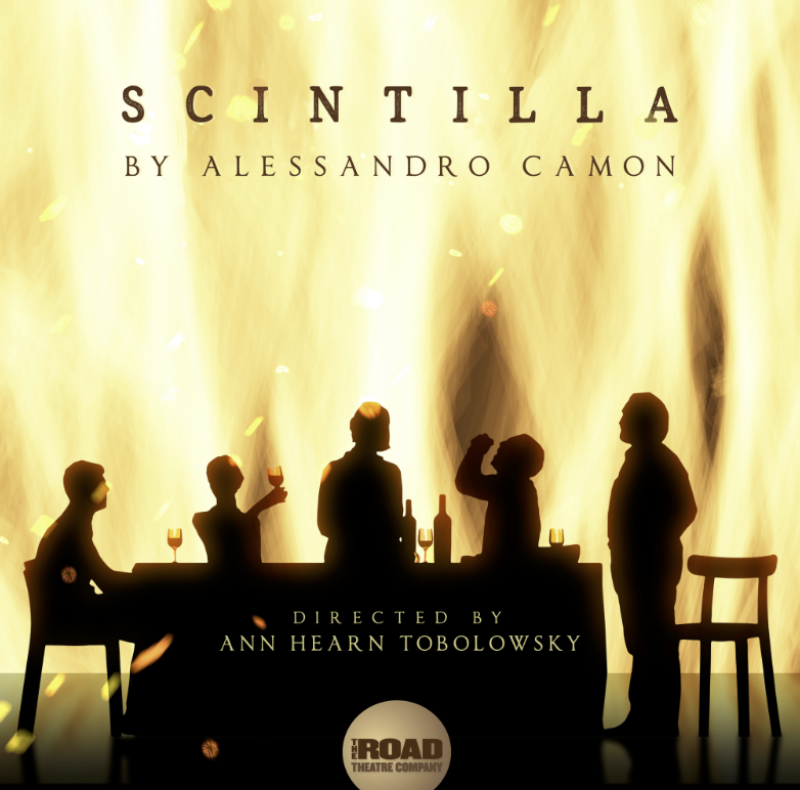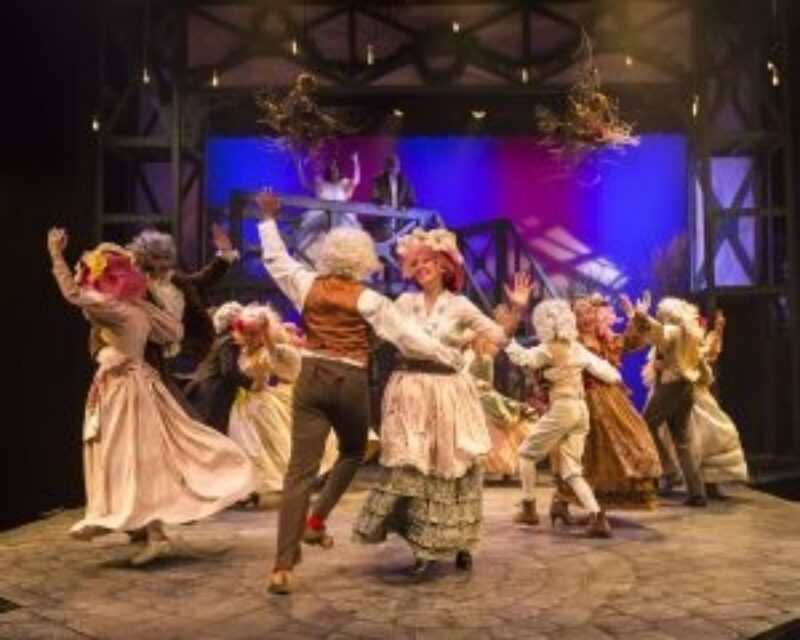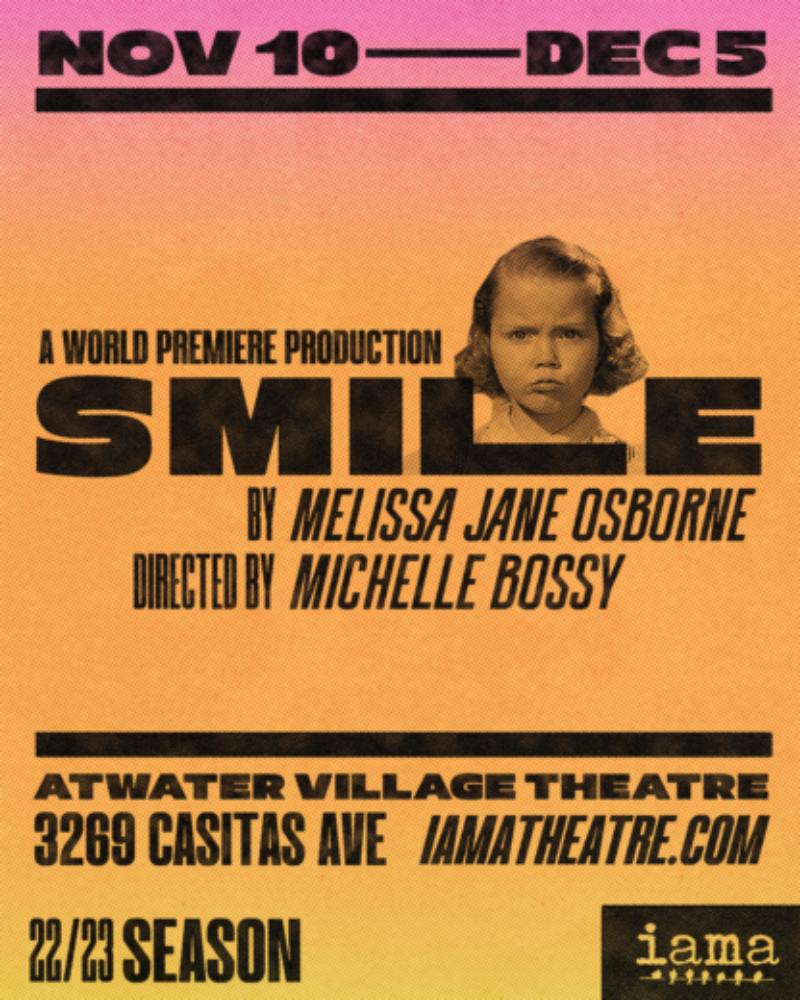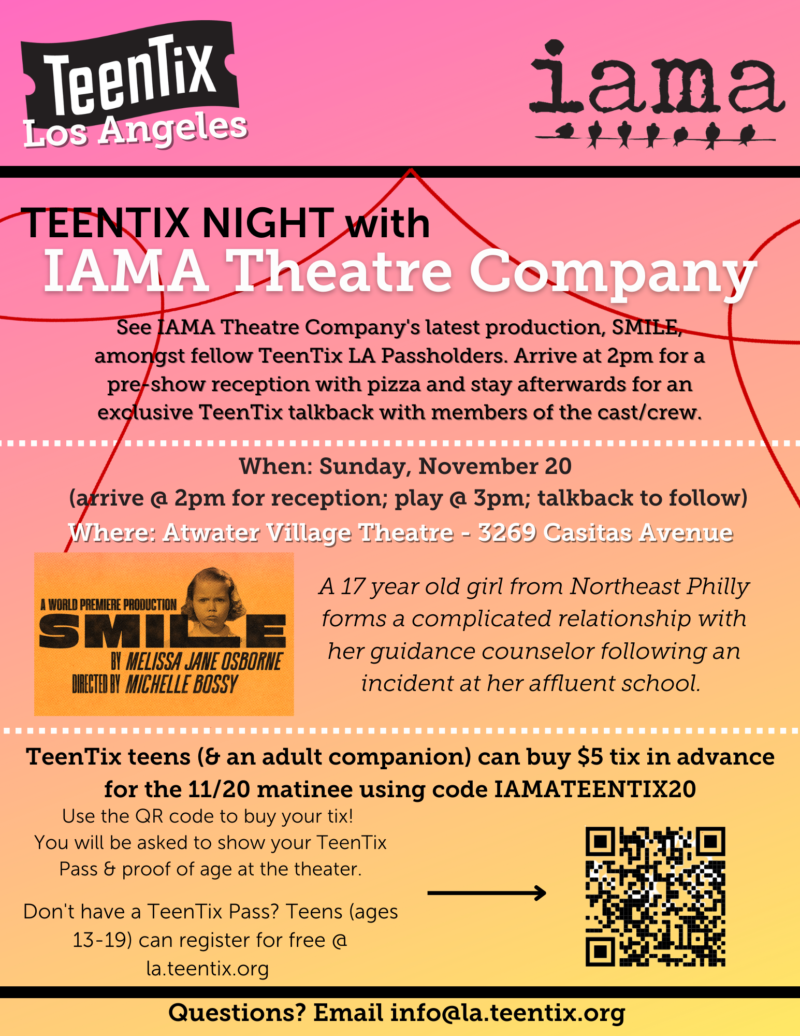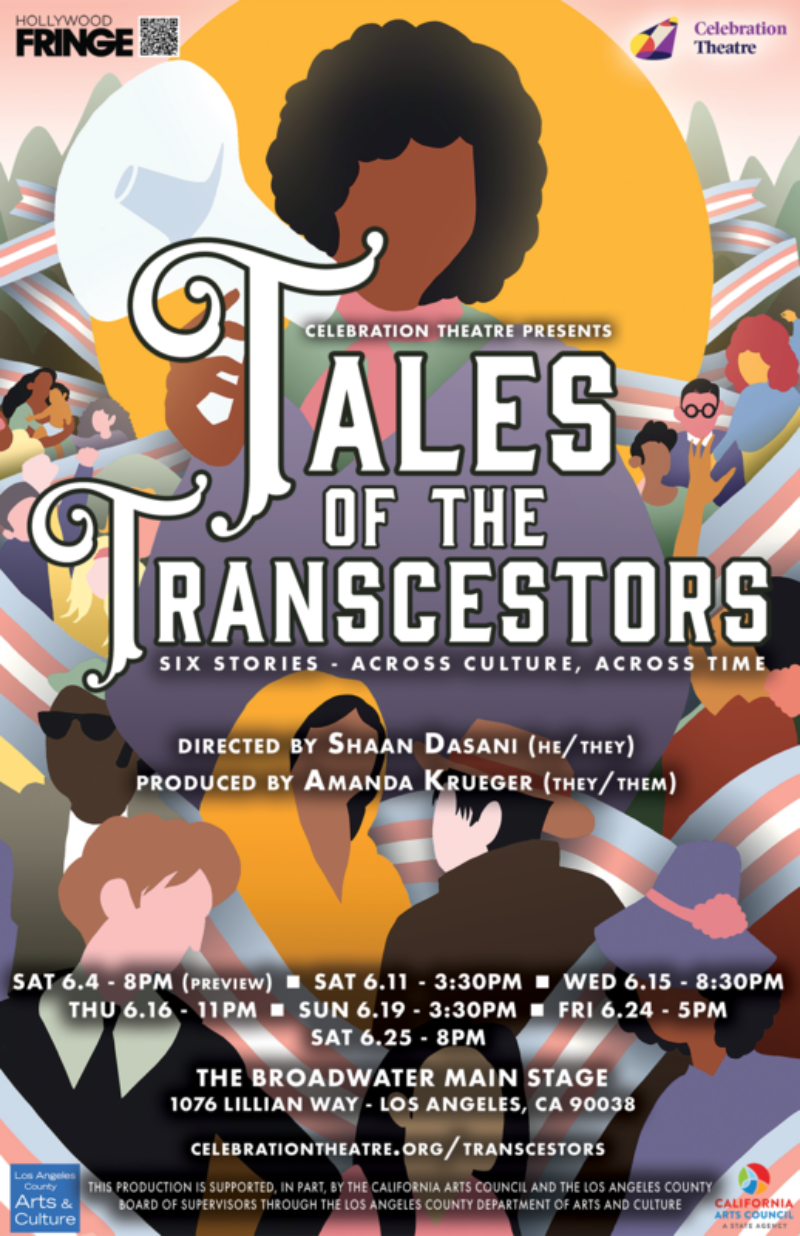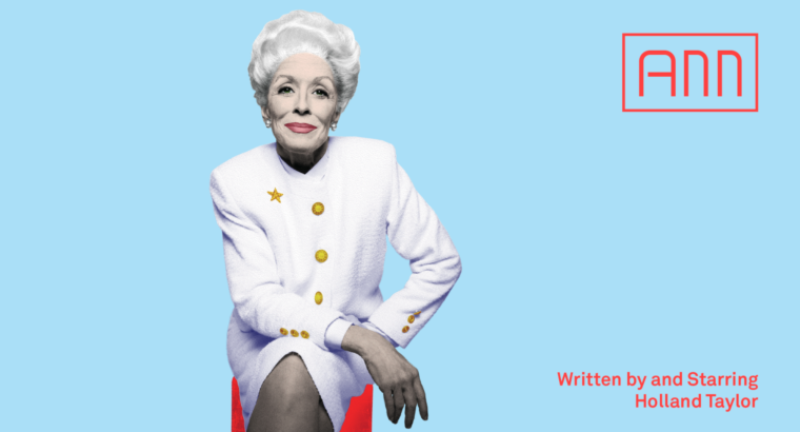Dive Deeper into Hamlet, Solus with David Melville
Founded in 1998, Independent Shakespeare Co. started their iconic free outdoor
Shakespeare performances in 2003, at Barnsdall Park. By 2010, ISCLA had moved to Griffith Park’s Old Zoo and has since performed two shows every summer, with bonus live music and cultural performances for their audience of over 40,000. I am one of ISCLA’s many adoring patrons, and have seen their shows every summer for longer than I can remember. Their sense of whimsy, incredible commitment, total immersion with the outdoor performance space, and ability to adapt Shakespeare to modern sensibilities through music, costume, and more makes the experience a delight every time.
As a non-profit theater group, their longevity and ability to survive the pandemic
is inspirational -- amidst the Covid-19 lockdown, they even established a permanent stage at Griffith Park! But their outdoor space is not the only home of ISCLA’s breathtaking shows; in 2011, Atwater Crossing Complex welcomed ISCLA into their arms with a year-round indoor theater space. This 65-seat theater has been home to incredible shows over the years: Julius Caesar, Charles Dickens’ A Christmas Carol, singalongs, and even workshops with Independent Shakespeare’s wonderful founders, David Melville and Melissa Chalsma. Now, from March 21-April 9, David Melville will be performing Hamlet, Solus, a one-man show version of one of Shakespeare’s most famous tragedies.
Melville is no stranger to solo theater; for many consecutive years, he has
performed a two-person show of A Christmas Carol, playing both Dickens and most of the characters. He’s also done some even more minimalist one-person shows including Nicholas Nickelby and Solemn Mockeries. Hamlet, Solus, however, is an entirely different beast. Fascinated by the commitment to such an emotional and complex show, as well as being a huge fan of Shakespeare, I sat down with David Melville to discuss what led him to create this iambic lab.
Cyrus: Of all the famous and beloved Shakespeare plays, what drew you towards Hamlet for the Iambic Lab?
David: Well, I suppose I have a long history with Hamlet. I've done it a number of times, not just with ISC. It was the play that brought me to America. I was in a production that was on Broadway in 1995, and Ralph Fiennes was playing Hamlet, and that's where I met Melissa, and Melissa and I run the company together. So really, Hamlet's the reason I ended up in America, and I ended up meeting Melissa, and without Hamlet, I wouldn't have my children, or Independent Shakespeare Company wouldn't exist. And then when we started doing shows in the park, our second season, 2005, we did Hamlet, and I played Hamlet that time. And I think it was the first show where things really started to take off. It was the first show that really started attracting significantly large audiences, and it was popular.So we did it again the next year, and then we came back to it several times, and it's always been really good to us, I think, in that regard. And the last time I did it was, gosh, must be about 12 years ago now, and I was sad when it was over, because I had such a long relationship with the play. But I always thought it was unfinished business somehow, and I think I was doing a school's workshop, and I had to do some speeches from Hamlet, and I just got the idea then, I wanted to actually do this as a one-person show. But if you do a one-person show, you're not just playing Hamlet, you're playing everyone, so that kind of gives you license to, you know, to be creative. So that's kind of how we arrived at it.
Cyrus: That's perfect. That's actually a great segue to my next question of playing even one of the main roles in Hamlet would be a daunting task, and you're playing them all. What's that like, emotionally and physically, and even practically?
David: We're not doing four and a half hours of me saying absolutely every line. And it's been whittled down quite a bit. I think that it probably should be, it's a little, probably a little over 90 minutes. So I've had to cut quite a lot of roles, and I've really sort of centered on certain themes and certain relationships. But, you know, most of the main characters are there. So I found it interesting starting to work on it, having been so familiar with Hamlet and Hamlet's point of view, it does feel a little bit like the characters are being presented from Hamlet's perspective. So Claudius is way more evil than an actor would approach him, probably, you know, and Gertrude is way more fickle and flighty. And I don't know whether that's how it'll end up in the actual sort of final mix, but certainly as a way in, it was hard to dissociate myself from Hamlet's perspective and his point of view.
Cyrus: One thing that fascinates me about Independent Shakespeare is that you guys often incorporate modern music and live music into your productions. I noticed that that's also a theme for Hamlet, Solus. How do you think that enhances or changes the meaning of the story?
David: Hopefully it enhances it. I think there might be some people that come and see it and strongly disagree with that. You know, there's not a whole lot of music. I mean, it's mostly the Shakespeare text, but I, you know, we wanted to use this as an opportunity to experiment with a certain way of doing things. And I've done a number of one person shows before and I've always approached them in a very minimal way.But, you know, I've been interested in -- I've started doing a lot of sound design for the show. So when I work as a director, I often do my own sound design. And I really like it. And I record my own music at home because I write. So I've been writing songs for the Shakespeare plays. So I do love sound design. And I was sort of curious about how to use looping and whether there was a practical application for that in a stage. So I wanted to see if there was a way to create live loops on stage, and I'm trying to incorporate it on some lines. So certain words can be put into a loop and then sort of repeat. It's quite complicated, because it means I've got to have various trigger points around the stage, where I can activate these things. I mean, doing Hamlet as a solo show is a tightrope walk, as it is, but to deal with all this very fiddly tech stuff… I don't know, my mind might explode.
Cyrus: But hopefully not until after the show.
David: During the show, probably.But, you know, in rehearsals, we've done it, you know, it's quite satisfying when it works. But so yeah, I was just really interested in can I do that? Can I build just using the kind of synthesizer applications that you would use in a program like Logic? There's a live version of that called Main Stage. And I'm not using it a whole lot, but to be able to sort of play just a tone that will underscore a speech in a way.
David (continued): I'm giving a little bit more space to a character who I think is probably the most important character in Hamlet, outside of Hamlet, who doesn't have any lines. And that's Yorick. Whenever you see a picture of Hamlet, you know, it's Hamlet holding Yorick. He's quite sort of iconic as far as the production goes. But we don't really know too much about him [Yorick]. But he has a very interesting perspective, I think, because Hamlet is so much about death and grief. And that's one of the themes I'm trying to explore in this. And, you know, of course, Yorick sort of is on the other side of that. He does know a thing or two about it. You know, he might just be the court fool, but he is actually, something that Hamlet doesn't know, and it's not until Hamlet meets Yorick that it's after his meeting with Yorick that he's finally ready to do what he's been avoiding all of this time, not until he stares into Yorick's eyes, or what used to be his eyes. So I've sort of resurrected him, and he's helping to narrate the show a little bit. But rather than me sort of trying to write Shakespeare, I'm doing it mostly in the form of this 1930s/40s English Music Hall style, in the style of this performer called George Formby, who played a banjolele. And so I'm sort of riffing around his song style, which is very upbeat and comedic. So, tonally, it's very much against the grain of what people would expect from something like this. I'm not sure, you know, whether it's going to please people or not. But I'm just -- this is a ridiculously indulgent project. (laughs)
Cyrus: What was the process of making Hamlet, Solus? Like, I know sometimes productions can be sat on for years. If so, how many months, years, how much time has been spent?
David: We've talked about it for a long time, mostly sort of as a joke. When we're trying to think about what we're going to put in our indoor space, and something drops out. And I said, ‘Well, I can always do my one-man Hamlet’. But this year, I guess, Melissa, just put it on the calendar. And I didn't know whether she was serious or not, but I decided to take her seriously. And then the next part, I guess, was trying to learn some of the speeches of the characters that I'd not played before. So that they're sort of more in my bones, because Hamlet's very in my bones, but you know, Gertrude obviously isn't. So that was the other key part of the process, but it's been very, very much “solus”. But, you know, one of the nice things about doing a one person show is that you can always be in rehearsal. If you're in the car, or whatever you're doing, you know, you can always be working on it. But one of the downsides is that it's rather lonely. And I, one of the things I love about being in the theatre is, you know, having my fellow actors around to goof around and play with and, you know, it's a little lonely. Although I do anticipate that I can have many cast parties, and they'll all be very cheap.
Cyrus: You can invite Hamlet and Gertrude.
David: I don't know that you’d want Hamlet at a party. (laughs)
Cyrus: What do you want or hope audiences to take away from this show?
David: I think that I'd like people to connect with the themes that I want to explore. I'd like them to have a slightly deeper understanding of some of the relationships. I'd like them to sort of understand the graveyard scene as more than just a comic bit. I'd like to think that one of the advantages of doing it as a one person show is you can show characters' points of view a little clearer. Because you have to take a little bit more time in between reactions, and you can stay with reactions, you can show one person saying something to show the other reaction. But if it's just you, you can highlight some of the characters' points of view. There are some key moments. The piece with Hamlet meeting Yorick, which I'm setting up Yorick as kind of this dark comic character. But there's a seriousness when they meet. And also the scene with Gertrude -- I think there's something about the way that it's been edited that it sort of really leads to that moment. So I hope I can sort of highlight some of Gertrude's turmoil and her guilt. And I hope it sort of weirdly, even though it's very sort of edited, I hope there are some elements of the story that maybe make a little more sense. Something I'm very interested in is why Hamlet pretends to be mad. I'm making Hamlet's madness, this sort of weird, like early Pink Floyd sort of noise that sort of keeps coming back and annoying Claudius. So I can create this sort of sound character. So and again, because you're seeing things, you know, the perspective of the characters a little more clearly because it's one person show. I hope I can sort of hone in on the use of Hamlet’s feigned madness that’s a little different from what you would be able to do in a bigger production. Basically grief and madness.
Cyrus: I love that. You’ve touched on this a little bit, but what do you hope to take away from this experience? Do you think you’ll do an iambic lab or Solus project like this in the future?
David: Well we haven’t performed it yet, so we don’t know. It is an act of extreme hubris, so I could fall on my face and regret it. Or I could find wonderful new modes of expression. I mean, I’m challenging myself in ways I’ve never done before, and it’s really scary, and I hope it’s successful and it resonates. If it isn’t successful, I hope I give myself permission to be brave.
Cyrus: Lastly, do you think Hamlet, Solus is accessible to teens who have never seen Sahelsepate and how might they want to prepare for the show?
David: That’s a really good question. I hope it will be; I’m trying to make the story as clear as I can get. I do think the approach to it is playful, hopefully humorous, moving when it needs to be. That’s always a dangerous area with tragic materials -- you don’t want to overplay that comedy, but not overlay the tragedy that people are so bored with. Checkhov used to say “you need to make people laugh before they can cry”. It’ll never be boring, any of this. I do think it’ll be of interest to teens. Even if students don’t study Hamlet, they’ll probably hear some of these lines used as quotations; it’s nice to know where it sits, where it stems from.
Cyrus: Thank you so much; that’s all the questions I’ve prepared. Do you have anything else you’d like to say to teens or anyone else preparing to see the show?
David: Just come with an open mind (laughs). Everything we do, we try to make it warm and welcoming to everyone. If you don’t know Hamlet, it could be the beginning of a wonderful journey, and if you do know Hamlet, it could lend you some deeper insights.
Though Hamlet, Solus has only been in production for a few months, it seems as
though this production from David Melville was inevitable. Hamlet is interwoven with ISCLA’s very DNA, from Melville’s move to America to Independent Shakespeare’s rise in local fame. His personal connection to Hamlet creates a gripping, personal narrative that just hearing about made me jittery with excitement. From the moment I heard about Hamlet, Solus and marked my calendar to see it, to every detail I learned about its creation and nuance by talking to David Melville, I knew this solo expedition into Hamlet would be something unforgettable.
This interview-article is compiled from an audio interview conducted on 5/3/24. Not all of Mr Melville’s full responses have been included. Some responses have been edited or cut.

